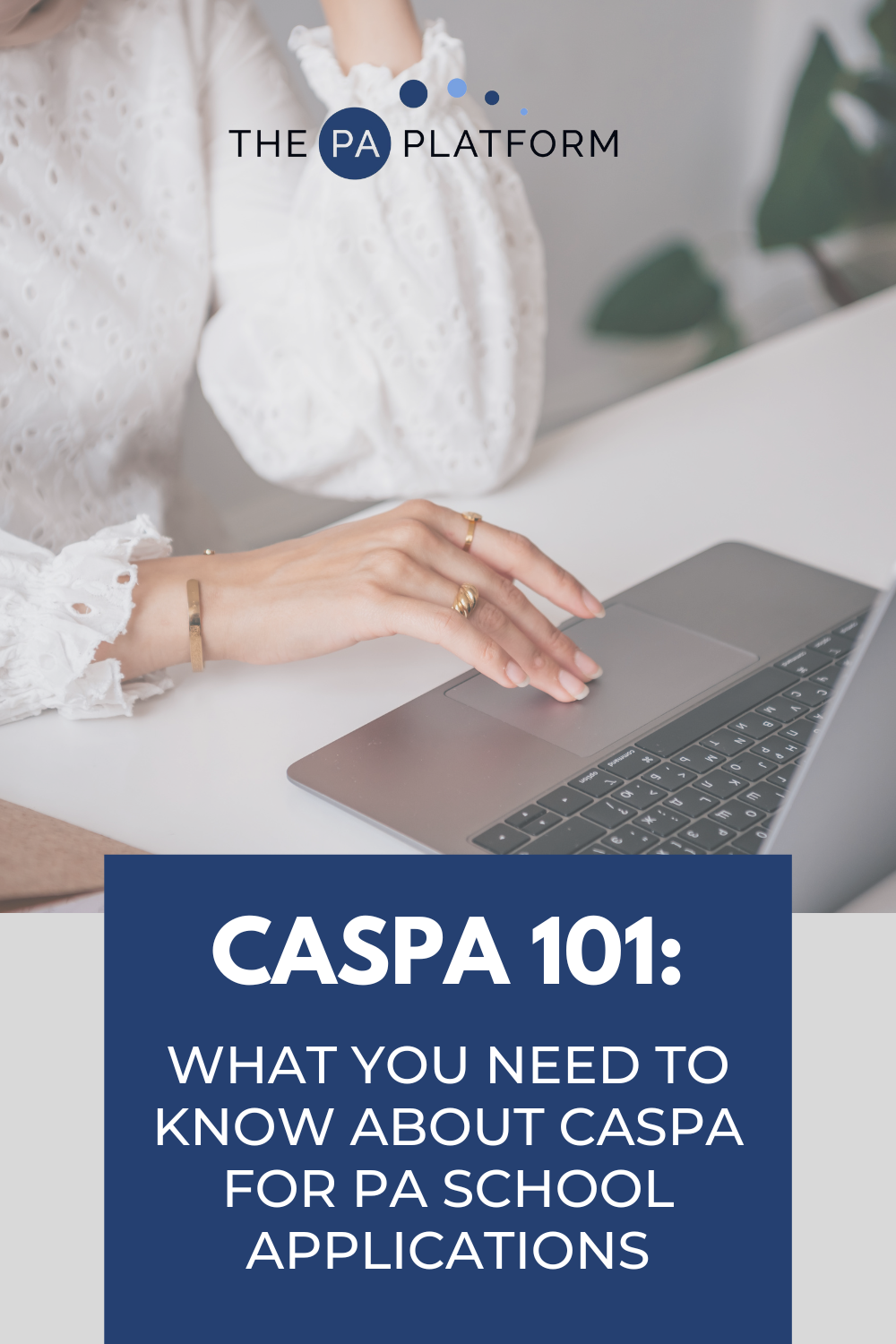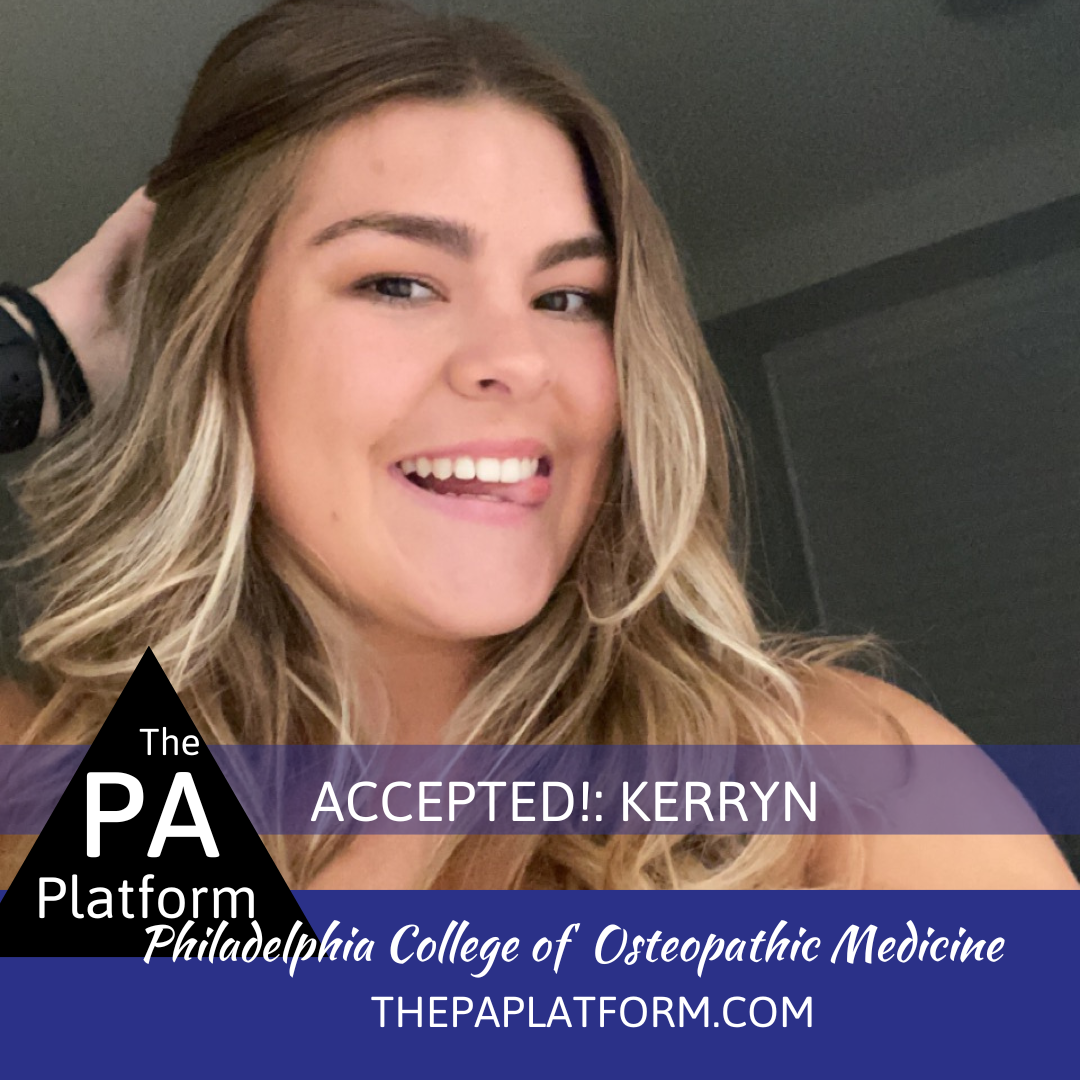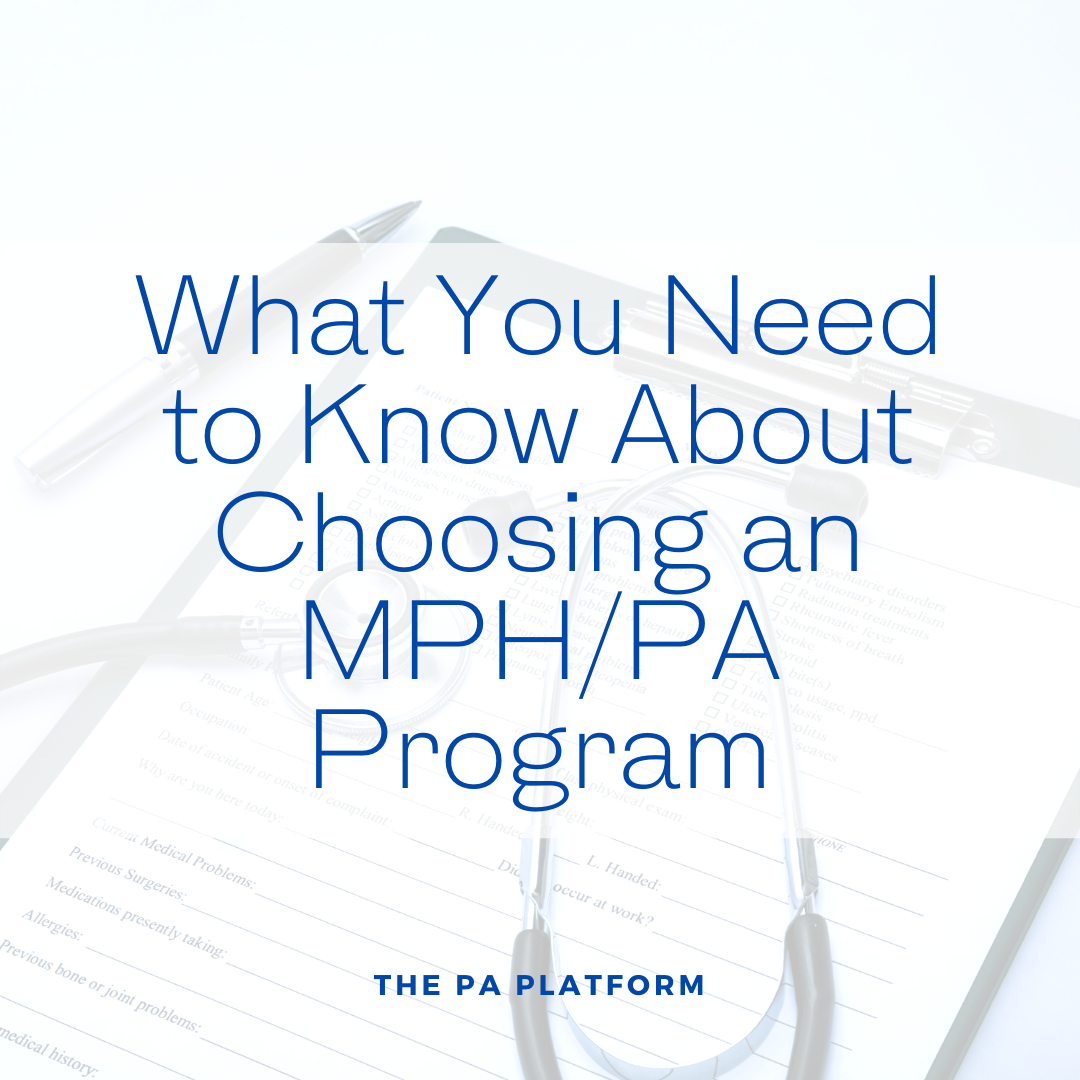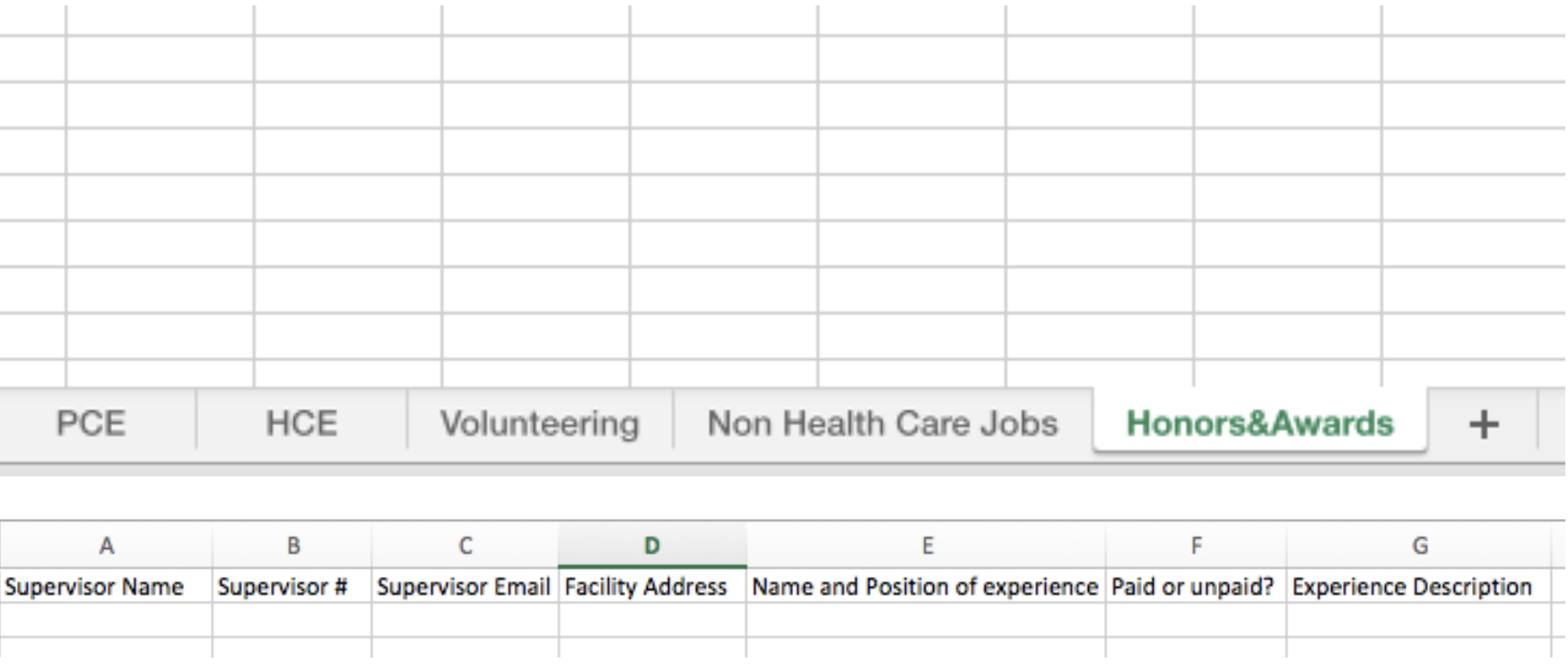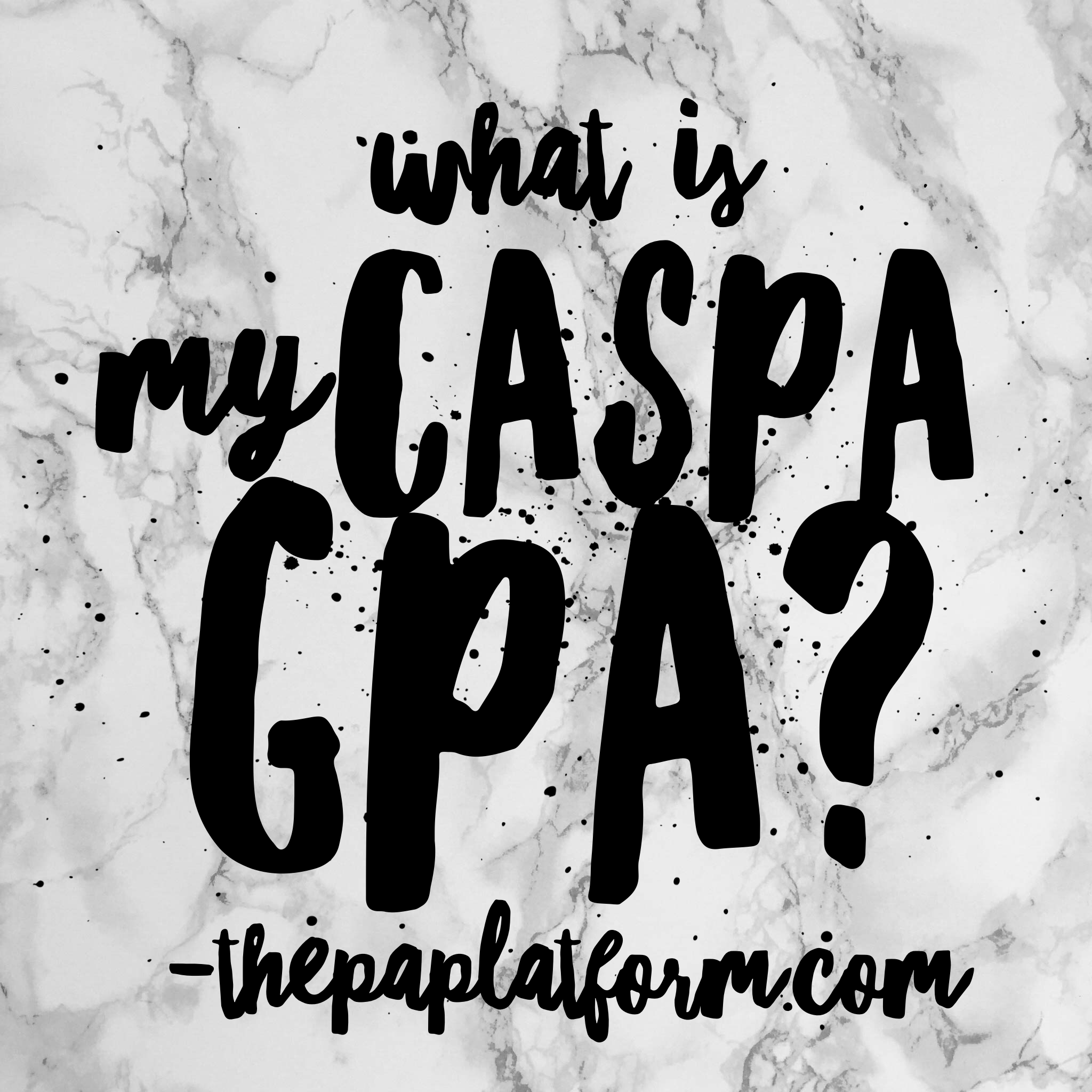The process of gathering information and understanding the process of PA school applications can be daunting and overwhelming. Having an understanding of the application service prior to getting started will make the process easier and just a bit less stressful. If you need additional information on CASPA and the application process, check out the Pre-PA Workbook.
What is CASPA?
CASPA is the universal application service for the majority of PA school applications. CASPA stands for “Centralized Application Service for Physician Assistants,” and it is the universal application service for most PA programs that is operated by PAEA.
You input all your information, choose programs to apply to, and send your application to everyone with the push of a button.
It is divided into four sections: Personal Information, Academic History, Supporting Information, and Program Materials. Each section requires specific information and documentation, which I recommend familiarizing yourself with by reading the CASPA FAQ. If you have any specific questions about CASPA, you can reach out to CASPA directly through their customer service line, email, or social media channels.
When Does CASPA Open?
CASPA typically opens at the end of April. Verify the exact date on the CASPA website or through official announcements to ensure accuracy. For updates, you can also subscribe to The PA Platform newsletter. It's important to note that while CASPA is technically open year-round, there is a period it closes between March and April where you won't be able to apply to any programs or access the application. It's best to wait until CASPA officially opens before starting your application to ensure that all the necessary information gets saved to your account properly. Once CASPA opens, you can begin working on your application, requesting transcripts, and notifying your letter writers. Keep in mind that letters of recommendation are often the component that takes the most time, so it's crucial to give your letter writers ample notice. As for information that carries over from previous applications, most of it should transfer, but you will need to re-upload your personal statement and request letters of recommendation again.
How Many Sections Are in CASPA?
CASPA consists of four main sections: Personal Information, Academic History, Supporting Information, and Program Materials.
Personal Information: In this section, you provide your biographic information, such as your name, contact information, demographics, and background details.
Academic History: This section focuses on your educational background. You will enter information about the high schools and colleges you have attended, including details about your coursework, grades, and transcripts. CASPA requires you to manually enter your course information, even though they have access to your official transcripts.
Supporting Information: This section is where you include various supporting materials. It includes sections for experiences, evaluations (letters of recommendation), licenses, certifications, and your personal statement. You will input details about your healthcare experience, shadowing, volunteering, and any other relevant experiences. You will also request and manage your letters of recommendation in this section.
Program Materials: This section is specific to individual programs and may not be present for all programs. Some programs utilize CASPA to collect additional materials, such as supplemental essays or prerequisite courses. It is important to check each program's requirements and application process on their respective websites.
It's important to note that each section may have additional subsections and specific requirements. Take your time to thoroughly read and understand each section's instructions and enter the information accurately.
I’ve Never Applied, but CASPA Says I’m a Reapplicant
If CASPA is indicating that you are a reapplicant, it means that you have previously submitted an application to at least one program through CASPA. CASPA tracks your application history and labels you as a reapplicant based on that information. However, it's important to note that individual programs will only consider you a reapplicant if you have previously applied to their specific program. Other programs that you are applying to for the first time will see you as a first-time applicant. It's also worth mentioning that being a reapplicant does not necessarily have a negative impact on your application. It's a common occurrence, and many applicants successfully gain acceptance in subsequent application cycles. If you are a reapplicant, it's essential to reflect on your previous application, identify areas for improvement, and articulate your growth and readiness to succeed in your personal statement and interviews.
What Moves Over from Cycle to Cycle?
In CASPA, certain information should hypothetically carry over from one application cycle to another. However, it's important to note that not all information will automatically transfer, and you may need to review and update your application for each cycle. Here is an overview of what information typically carries over:
Personal Information: Basic biographic information, such as your name, contact information, and demographics, may carry over. However, it's always a good idea to double-check and update this information to ensure accuracy.
Academic History: In most cases, your academic history, including the colleges and universities you have attended, your coursework, and grades, will carry over. However, it's crucial to review this section carefully to confirm that all your information is accurate and up to date.
Supporting Information: Some supporting information, such as your healthcare experiences and volunteer work, may carry over. However, it's essential to review and update this section, as your experiences and involvements may have changed since your previous application. Personal statement and essays will not carry over between cycles. Save these elsewhere.
Letters of Recommendation and Personal Statements: Unfortunately, letters of recommendation and personal statements do not carry over from one cycle to another. You will need to request new letters and have them submitted to CASPA and enter your personal statement again for each application cycle.
It's important to thoroughly review and update all sections of your CASPA application to ensure the most accurate and up-to-date information is included. Remember to check the CASPA website and resources for specific instructions and guidelines for each application cycle. Do not use CASPA as the primary place to save your application information. We recommend Mappd, a free application tracker, as a great option for saving experience details, planning your school lists, and getting the most accurate GPA calculations.
When Should I Submit My Application?
The best time to submit your CASPA application depends on several factors, including the specific programs you are applying to and their application deadlines. In general, it is recommended to submit your application as early as possible, especially for programs with rolling admissions. Submitting your application early allows you to be considered for more interview invitations and increases your chances of securing a spot in the program.
Aim to submit your CASPA application in mid to late May or early June. This timeframe typically provides enough time for your application to be processed and verified before programs begin reviewing applications. However, it's important to note that some programs may start interviewing very early, even in June. Therefore, it's crucial to check each program's specific timeline and deadlines to ensure you submit your application in a timely manner.
If there are specific reasons that are holding you back from submitting your application, such as working on your personal statement or following up on letters of recommendation, it's essential to address those concerns and take steps to overcome them. Identify the reasons for the delay and develop a plan to address them promptly so that you can submit your application in a timely manner.
Remember, submitting your CASPA application early does not guarantee acceptance, but it does increase your chances of being considered for admission. Take the time to ensure that your application is complete, accurate, and reflective of your qualifications and experiences. If you would like to schedule an application review, book a session with one of our pre-PA coaches to ensure you’re ready to go..
When should I send my transcripts to CASPA?
Your application will not be verified until all of your transcripts are received. If classes are in progress, you will need to wait until the grades are processed if you want them to be included in your GPA calculation and verified by CASPA. Transcripts should roll over between cycles, but if they are sent while CASPA is “closed” you’ll likely need to resend once CASPA opens. Transcripts will be sent to CASPA and not directly to programs unless specifically requested.
What is CASPA verification?
CASPA verification is the process where CASPA reviews and confirms the accuracy of your application, including your transcripts and GPAs. When you submit your application, CASPA will verify your transcripts and calculate your GPAs based on the coursework you have entered. This verification is done only once per application cycle. It is important to note that if you make any updates or send additional transcripts after your initial submission, CASPA will not re-verify those courses or update your GPAs. Therefore, it is crucial to carefully review and enter all your coursework accurately before submitting your application for verification.
How Long Does it Take for Verification?
Based on the information from my interviews and experiences, the CASPA verification process typically takes around 2-4 weeks. However, it's important to note that this timeframe may vary depending on the volume of applications being processed and any potential delays or issues that may arise. It's recommended to submit your application as early as possible to allow ample time for verification and to meet program deadlines. It's also important to ensure that you accurately enter your coursework and submit all required documents to avoid any potential delays in the verification process. CASPA states to allow up to 6 weeks for verification.
In summary, there are a few things you can do ahead of time to prepare for your PA school applications.
Familiarize yourself with the CASPA application: Take the time to thoroughly understand the CASPA application, including its various sections and requirements. This will help you navigate the application process smoothly and ensure that you provide all the necessary information.
Start early and stay organized: Begin the application process well in advance to allow ample time for gathering all the required documents, such as transcripts, letters of recommendation, and personal statements. Create a checklist or a timeline to stay organized and ensure that you complete each section accurately and on time.
Pay attentiion to detail: CASPA requires attention to detail, especially when entering your coursework and grades. Double-check all information for accuracy, as any mistakes or discrepancies could affect the verification process. Be sure to enter your courses exactly as they appear on your official transcripts.
Remember, the CASPA application process can be complex, but with careful preparation, attention to detail, and ample time, you can submit a strong application that reflects your qualifications and dedication to becoming a PA.

